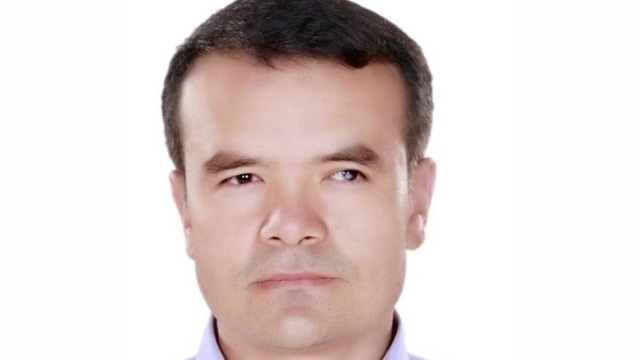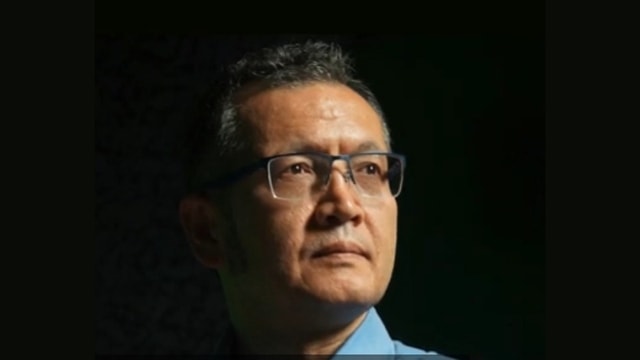Whether the physical destruction of the Uyghur people or the total destruction of their culture, this is genocide! #SmashTheCCP
From Bitter Winter
By Ruth Ingram
Non-Chinese culture is repressed or reduced to a tourist attraction in Xinjiang. But exile and sorrow have produced a flurry of poetry and creativity among the diaspora.
Strange bedfellows; tear gas and poets, tasers and writers, electric cattle prods, handcuffs and artists; folklorists and pepper spray. But when orders come down from the top to break Uyghur lineage, break their roots, break their connections, and break their origins, and CCP procurement figures for a secret network of transformation through education camps include instruments of torture, the pieces of the puzzle start to make sense.
No one willingly walks into the annihilation of their culture. Unreasonable force will be part of the deal.
Not content with rounding up so-called “holy warriors,” “splittists” and “the politically dangerous” for Beijing’s euphemistically named “vocational training” program, more than 400 academics have also been dragged into the black hole of internment and the disappeared since the start of a program of cultural annihilation, which began in 2017.
Unlike most Uyghurs who were corralled into 24/7 Chinese language classes and political indoctrination, these university professors, writers, poets, singers, and dancers are fluent Mandarin speakers and often loyal Party members. Accused of being two-faced traitors and half-hearted supporters of the regime, these intellectuals’ only crime is their love for Uyghur history and culture, and their desire to see their nation flourish. They have all without exception vanished, and with them a vital bridge to the intangible cultural heritage they embody.

Uyghur writers, poets, and academics gathered online last week to commemorate UNESCO’s International Mother Language Day and the 100-year anniversary of PEN International, a worldwide association of writers, founded in London in 1921 to promote literature and defend freedom of expression worldwide. Members of the Uyghur PEN Centre, one of more than one hundred and fifty mother tongue groups around the world, brainstormed ways to fan the embers of Uyghur culture in the face of Beijing’s determination to see it eradicated.
Heartbroken beyond repair, London-based project director Aziz Isa Elkun, no stranger to Bitter Winter, himself a poet and writer, comes alive when speaking his native language with his two British-born daughters. “I love my culture and everything it stands for,” he said. “Whenever we share my native tongue, I feel as if I am back in my homeland.”

He and other exiled Uyghurs have watched the systematic dismantling of everything they hold dear, but are determined to not to stand idly by and let it disappear at the whim of Beijing. He sits at his desk in London, his latest work “Borders” decries the man-made barriers that have imprisoned his people…
“…I want to break your cage
I want to break your silence
I want to be free
Free like a bird
Like a wild pigeon
To fly freely in the blue sky…”

The irony of the theme chosen this year by UNESCO, of which China was a founder member, “Fostering multilingualism for inclusion in education and society,” was not lost on London-based Aziz. As Beijing violently dismembers all vestiges of his people’s culture, religion, traditions and language, the very organization China helped to establish has flagged up mother tongue education as an urgent priority, the very thing China is systematically trying to destroy in his homeland.
As the destruction of Uyghur language books continues apace, the imprisonment of authors and poets, the rounding up of owners of the banned books, and the forbidding of the next generation of Uyghur children to use their mother tongue, UNESCO director general Audrey Azoulay warns that denial of mother tongue education “hinders learning, as well as access to heritage and cultural expressions.” In direct contravention of Beijing’s new philosophy, the organization China facilitated is paying special attention this year to “multilingual education from early childhood,” because “mother tongue is always an asset.”
Aziz and his colleagues accept the baton has been passed to Uyghur exiles to keep the creative flame, all but snuffed out in Xinjiang, alive into the next generation. “At this difficult and very tragic time,” he urged, “Uyghurs living in the west must take advantage of freedoms denied their compatriots at home.” He longs to see a renaissance of creativity, liberal thought and openness among Uyghur artists in every discipline. “We are but a small number compared to millions in Xinjiang who are now silenced by the CCP,” he said, “but no government and no power has the power to destroy any culture and any written heritage,” he said emphatically.
A flicker of hope emerged from the silence of internment late last year when an extraordinary poem found its way out of a camp, gossiped and repeated by ex-detainees until it found its way to an American academic who has made it a mission to translate Uyghur poetry. Joshua Freeman, a former student of renowned poet Abduqadir Jalalidin, penned this translation whose final stanza lends flavor to the despair and isolation that has become the new fate of Xinjiang’s most creative.
“Through cracks and crevices I’ve watched the seasons change
For news of you in vain I’ve looked to buds and flowers
To the marrow of my bones I’ve ached to be with you
What road led here, how can I have no road back home?”

Exile and sorrow have produced a flurry of poetry and creativity among the diaspora, according to Freeman, many of whom are appreciating their heritage as never before. There is an urgency to make the culture relevant to the next generation, of necessity forming new allegiances and roots in their adoptive nations.
Large groups of Uyghur men in the Kazakhstan diaspora are reviving the Meshrep, an ancient tradition of evenings centered around national food, camaraderie, singing, dancing, and humor. Once submitted by the CCP to UNESCO for preservation as intangible cultural heritage, this uniquely Uyghur cultural gathering has now been twisted in Xinjiang into a propaganda tool for tackling extremism and cleansing the “virus of Islam,” according to Rachel Harris, an ethnomusicologist at SOAS.
Abduweli Ayup, now in exile in Norway whose only crime for which he served two years in prison in Xinjiang had been his longing to keep the Uyghur language alive among youngsters, teaches exiled children and writes poetry to keep alive the memory of home and his sister who has disappeared.
Mukaddas Mijit, based in the West for the past twenty years and now in France, regrets that it has taken atrocities and suffering for her to discover the value of her native culture. She longs for young Uyghurs to discover the diversity and richness of their heritage and to proudly share who they are.

Uyghur poets have been revered for hundreds of years, said Freeman. Poetry has always been used to express joy and sorrow, tragedy, anxiety and all major life events. The current atrocities have produced a flurry of verse from those who have never considered themselves talented writers. “Their work speaks to the power and tenacity of Uyghur culture even under impossible circumstances,” he said, citing his recent translation of the work of an exiled Uyghur woman in Europe. She longs for her homeland. She writes of:
“A lake thirsting for water
A heart hungering for the desert…”
Her longing for “reunion” and love which for her is embodied in the sands of the Taklamakan … She speaks of “cuckoo birds,” of “fortresses rich with stories,” and “cities rich with history.” And she concludes from distant banishment:
“You know happiness for me is a daydream,
Utterly pale.
Life is a notebook, utterly blank.”
The Uyghur poet Muyesser Abdulehed, writing under the name of Hendan, is wracked with “survivor’s guilt,” the guilt of having escaped and survived. She contemplates the death of an inmate in an internment camp:
“Don’t think of crying if the news says I have died,
Instead say that I am free now,
From the cold, from hunger,
From thirst;
From the hardship of identity.
Take one rock from your heart;
Grow lighter.”
No comments:
Post a Comment
Comments are subject to deletion if they are not germane. I have no problem with a bit of colourful language, but blasphemy or depraved profanity will not be allowed. Attacks on the Catholic Faith will not be tolerated. Comments will be deleted that are republican (Yanks! Note the lower case 'r'!), attacks on the legitimacy of Pope Leo XIV as the Vicar of Christ, the legitimacy of the House of Windsor or of the claims of the Elder Line of the House of France, or attacks on the legitimacy of any of the currently ruling Houses of Europe.